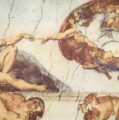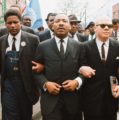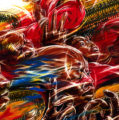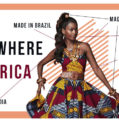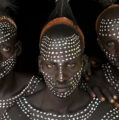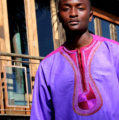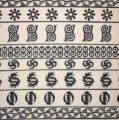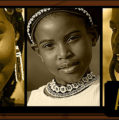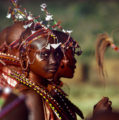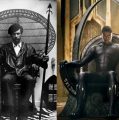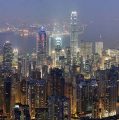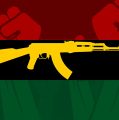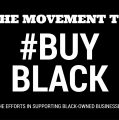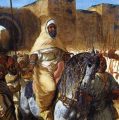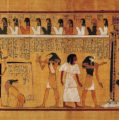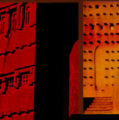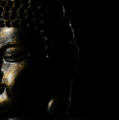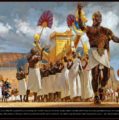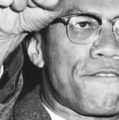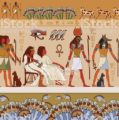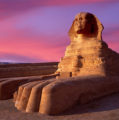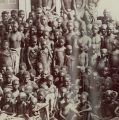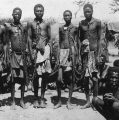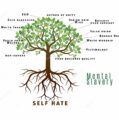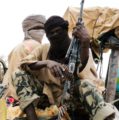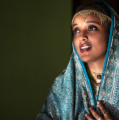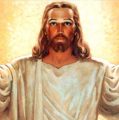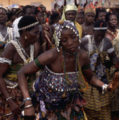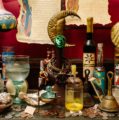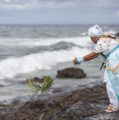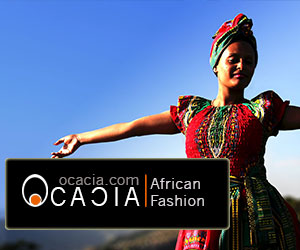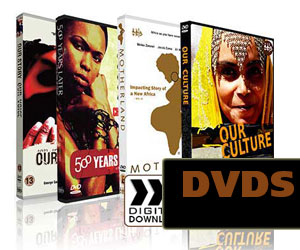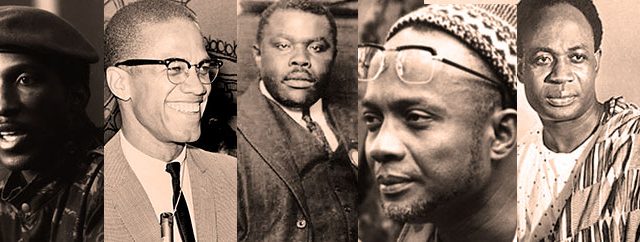
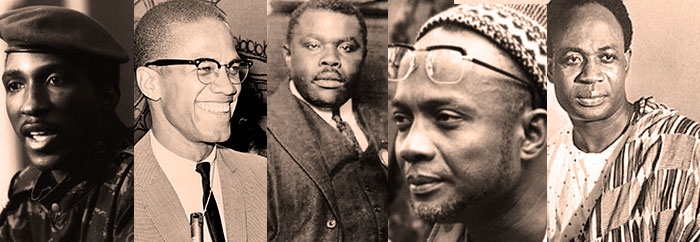

The Root of Failure in the African World
See Also | African Legends | Corruption
This article is written by different authors over many years. It has not been proof read.
You see men sailing on their ego trips
Blast off on their spaceships
Million miles from reality
No care for you, no care for me–Bob Marley
In terms of natural resources, Africa is the world’s richest continent. It has 50% of the world’s gold, most of the world’s diamonds and chromium, 90% of the cobalt, 40% of the world’s potential hydroelectric power, 65% of the manganese, millions of acres of un-tilled farmland, as well as other natural resources.
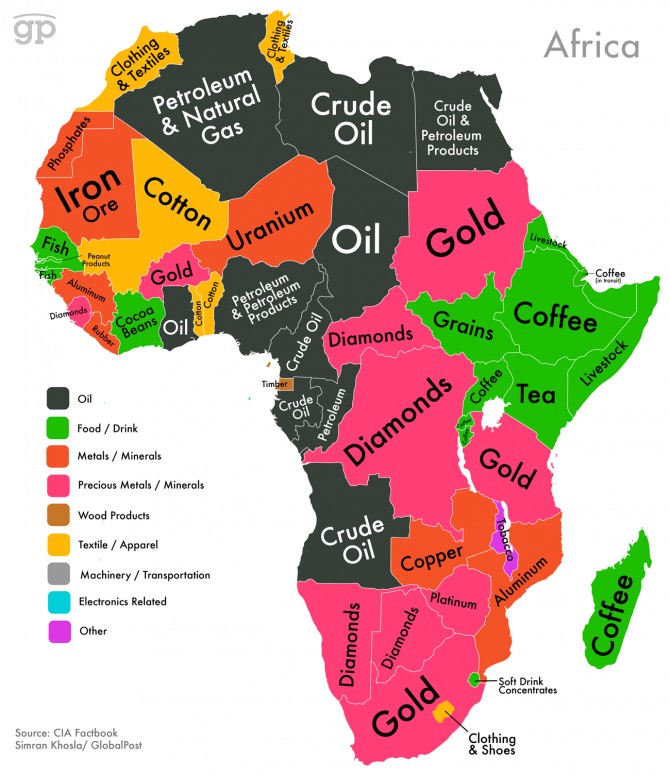
Mineral Wealth in Africa
Yet, despite this vast resource the bulk of African people live as if they were citizens of deserts. Despite being home to millions of skilled and talented innovators, African leadership struggles to stimulate and retain it strongest resource — the people: They either live in unnecessary frustration, hopelessness and poverty, die of preventable disease, or run to the West to gain appreciation. The greatest crisis in Africa is not due to HIV, religion, or famine, or even war. Because all of those things are tied to leadership in some capacity. The failure to produce an African brand from the billions of tons of raw material Africa exports to the West, is primarily due to the Faustian, myopic, selfish, backward type of non-progressive leaders who are planted as candidates in post-colonial empires. Top traits are either naive, vision-less, proxy implants, opportunistic/parasitic and totally compromised.
African leaders have caused the continent to lose between $1.4 trillion from 1980 to 2010.
Our moral duty, as citizens of this Earth, is to hold leadership accountable — and no one is beyond critique. Failure to critique leadership is far more than a lively fun opinion on a social platform.
How can you be “good” but failed to fix the most pressing challenges of your nation?
We can ill afford to let nostalgia, hero worship, cultism, good PR and media charisma cover our ability to review all leaders in all their capacities. Without a sharp critical assessment of leadership and the duties of leadership, we will select entertainers, sweet faced teddy bears, orators, cool cats, as opposed to strong visionaries. So in place of redressing ownership of our resources, we host AFRICOM, as opposed to empowering our people, we become better workers for the White oligarch, as opposed to being rich citizens in our rich land, we are consumers of Chinese junk. It is not a laughing matter, because millions of people are suffering/dying for no reason other than the terrible choices of these so-called leaders.
It is a tough one. The mistakes of a leader of a country are going to be far more damaging to far more people than say an iconic artist like Bob Marley or even a revolutionary like Malcolm X. Gaddafi and Mandela have more in common than Biko and Kwame Ture. Just like the mistakes of AHS will not likely cause masses of people to go hungry, while the mistakes of Mandela, Meles and Mugabe will.
The scale for weighing gold is the same scale for weighting shit
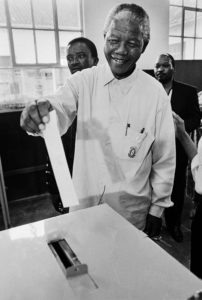
Mandela Voting for?
The mistakes of Nelson Mandela are 100% directly related to why South Africa is a mess. And it is funny how liberal people are with assigning blame to Mugabe but tied up in excuses when it comes to Mandela. The scales of how we judge leadership need to be the same.
A leader is responsible for the good and the bad. But we must put this against the challenges, no one person can solve all challenges. But that statement does not mean we can praise them while ignoring their failures. The same standards used to render praise must be used to render criticism. And one objective duty all leaders share is they must make a dent in some of the major challenges of a country. What were SA major challenges? What was the mission of ANC leadership? Because if it was not Mandela’s fault then do we put it on Zuma? He only inherited what Mandela failed to do, then he added his own failures and we need to separate out these things. So the only discussion is the good Mandela did vs the bad measured against the prevailing challenges? No one is blameless at a leadership level and your duty, like that of Nkrumah, is transformation. So we can be very specific when we discuss transformation. Are the people still uneducated– Yes. Are the people still violent and victims of white supremacy– Nothing much has changed. Is the country still racist and xenophobic– yes. For every step forward there seems to be a bigger step backward.
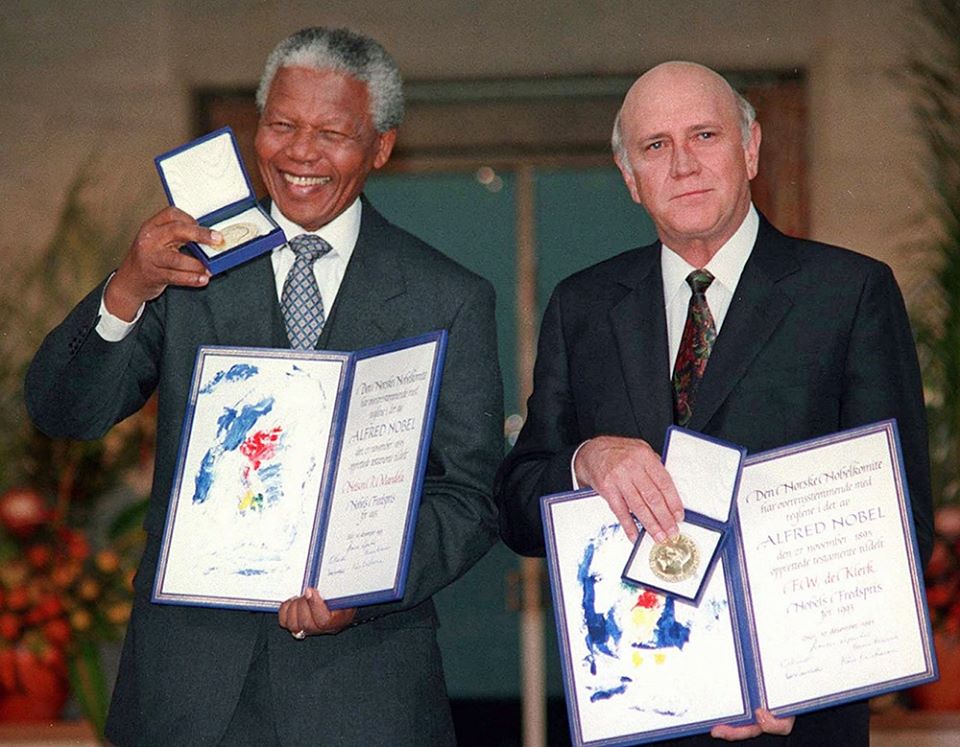
Racism reward and a Trinket victory for Africa
The major issues of the economy have barely moved. The great issue of white domination is no different. At least Mugabe did something with education while failing with the economy. So we have specific points to discuss when it comes to leadership. While Mandela certainly could not fix everything the question is what tangible things did he do to advance South Africa? And just giving people a vote to vote in a system that is still a White-dominated economy does not deserve praise. Per Thomas Sowell not one nation has ever gained economic liberation via political power alone. And the same is true for Obama, the only difference is he was not empowered to save Africans only America.
HINDSIGHT

This is what leadership is
Hindsight: Of all of the legends of Africa none of them held the total solution, they each brought different elements of perfection. So we do not quote Diop for economics, Blyden for culture, Du Bois for health, Garvey for warfare, King for identity, or Biko for history. Unlike them, we have the joy of hindsight and the better world they created for us to reflect on. They are remembered best for emulating the best aspects of their character.
VIRTUES OF LEADERSHIP
Those who profess to favor freedom and yet depreciate agitation, are people who want crops without ploughing the ground; they want rain without thunder and lightning; they want the ocean without the roar of its many waters. The struggle may be a moral one, or it may be a physical one, or it may be both. But it must be a struggle. Power concedes nothing without a demand. It never did and it never will–Frederick Douglass
This article will deal with various types of leadership including people in positions of power (or assumed power) in all spheres of African life; border post, education, NGOs, government, private business, media, etc. In all of these various and sometimes seemingly disconnected fields we find a striking continuity when it comes to the virtues of leadership. A leader is not defined by the person who barks orders at their subordinates, but someone who can evaluate a situation and chart a course which brings about certain objectives by utilizing and making everyone feel ownership of the process and thus perform at their best. The leaders is not always the idea generator, but the admin of the ideas of those he manages. The leader’s greatest skill is in decision making to allow that fluid relationship between the final objective and ways of achieving it efficiently.
Africa’s redemption is not only clasp in the hands of the leadership, but moreover in the active participation in change of the average person, in the home, in the school in the workplace, and in their private relationships.
The leader must be sincere and understand opportunities and foster innovation.The grand manager requires wisdom, patience, and above all the confidence to inspire others to believe in their abilities. Every good leaders should have the humility to know when they are wrong and be able to listen to a child if that child’s advice is applicable and sound. They should have the spine to stand up to inequity and if so, go down with the ship for every failure, and raise the flag for every success. And no one should lead that has not first learned to follow. If good leadership quality is fundamentally determined by one’s ability to deliver good speech rather than good example, we are sure to find ourselves in the hands of the sophist, hypocrites and traitors. If good rhetoric is the only gift a leader can give, no matter how sincere, then know that no nation’s engine runs on rhetoric.

By their fruit, you will recognize them. Do people pick grapes from thorn bushes, or figs from thistles?–Matthew, Bible
MERITOCRACY
The blind cannot lead the sighted, the uninformed cannot lead the wise, the unskilled cannot direct the skilled. And those that are deaf cannot define the sound. As with everywhere in the world, the current structures rarely rewards merit. So the guy running the center for the youth is squandering not only trust, but the potential of those he mismanages. He is not only wasting opportunities but the future of a nation.
A conscious leader under sharia, democracy, communism, anarchist, or even a plutocracy will be a million times better than a bad leader under the “perfect” system created by God himself
Corruption is not only about stealing funds. It is also about putting bad people in prime positions. People who have neither the passion (sincerity) or the qualification (skills) to do the job. This form of corruption is crippling Africa’s development. In the African union, you get a department full of village friends. None with the qualifications to do the post other than being clan members. The price of nepotism causes a complete failure of a country, or an organization to develop. Corruption is worse than murder. It kills more than warfare, it takes land and money to build a hospital and buys a private jet, condemning thousands of people over multiple generations to die of curable diseases. And the indirect consequences are from that poverty pool lie the next genius to lead Africa out of this morass; the next Malcolm X, the next Imhotep, the cure for cancer, the woman who will make cars run on air.
When the people fear their government, there is tyranny; when the government fears the people, there is liberty.–Thomas Jefferson
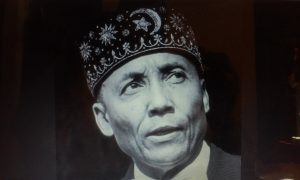
Strong Leader
Leadership should never be according to who shouts the loudest, duress, or who can make the best speeches. There is the face of power, and behind that those who have the best insight, and have a track record and the skills to best get results should be speedily selected. Real leaders do not prey and play to the passions and prejudices of the people they serve. they instruct them in ways that foster their development and enhance the quality of their lives. The new leaders that will cure AIDS, that will put a man on mars are hidden/lost to mismanagement and corruption. And that is a sin against humanity to have to tools for liberation but chose not to engage them. Or betray them for Faustian gains.
Some people say their leader gave us hope and loved us. These are abstract terms. We must lean on something more concrete to measure a leader
Some blind supports always react to critique of leadership by saying “Oh the leader has done amazing things; made amazing strides.” But in a continent where 70% access 7% of the national wealth, as an example, would a 2% increase in 19 years really be written down as an acceptable improvement?. If the government has built two houses, where it had the potential to have built 1000 (based on your natural resources and human potential) is called “progress” then we seriously need to ask what is this progress being measured against? 2% and 5% increase in prosperity in 1% of the population in the richest continent on Earth is certainly not “good leadership.”
The African genius can no longer be trapped between bureaucracy and mismanagement–‘ Alik Shahadah
A leader should not be the richest man in the country, where he can use his leadership to get even more wealth. In Kenya members of parliament have awarded themselves an annual salary of 100K$ in a country with a per capita of 1.7K$. [4] This is equivalent to US representatives awarding themselves salaries of 2.9M$. Yet this is a the democracy the West celebrates as the “way of the world” while it bombs Mali for choosing another path.
Icons Selected For Africans, not by Africans
“If you are a leader, / Take responsibility in / the matters entrusted to you, / And you will accomplish things of note…”–Ptahhotep
Think of a famous “black”, Wole Soyinka, Gates, Oprah, Mandela, Tutu, etc, regardless of what they are notable for, there is one thing the majority of them
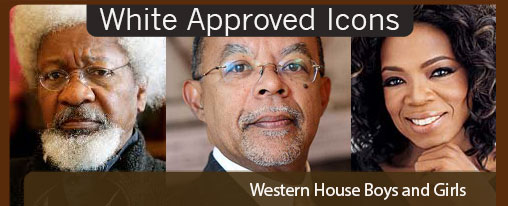
White Approved Icons
have in common. They are all famous because they have been approved by the White power world to notable “blacks”. There is not one single notable White person, that is notable by African approval—not one. And this should cause serious concern. The icons/ “heroes ” are named and approved by the forces of oppression. They are commodities in the system of capitalism—brands even. And African people didn’t pick them; they were picked for us. And unfortunately, most do not see very few of them are representative. So faces that look African, does not mean they are working for Africans, or the best voices for African issues. The role of many, like Oprah is to give the illusion of inclusion. “it is not so bad here for you, look at me. 0.00000000000000000000001% “success” story.”
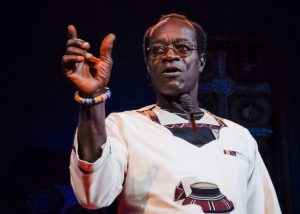
White Approved Africans c/o TED
The likes of Wole Soyinka are tools, which are moved into place to give authenticity to whatever beef the West has with Islam, African politicians, homosexuality, etc. They have built up his bag of credentials so he has become iconized and sold off as authentic; even if he makes no sense, shows no impartiality, or serves no Pan-African purpose. Henry Louis Gates, Jr. is just a more degraded version of Wole Soyinka but located in the politics of the Diaspora. Using his dark skin as a better tool for bashing African Americans over the head. Being able to say all the things his pay masters wish they could say.
They are tool of control, of seeding agendas directly into African Diaspora communities, a distraction, which as Fanon described as Black Skin, White Mask. And even when they mean well (very few of them), they are absolutely not qualified to speak. So either way you cut it, how did they get so high to speak so loud? Because if it is between a real historian with something progres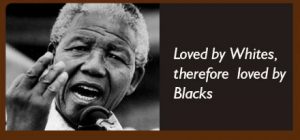 sive to say and a diluted confused black historian— they prefer and give career to the weaker one. So when African history is being thought, after 40 plus years, it is still starts with Slavery.
sive to say and a diluted confused black historian— they prefer and give career to the weaker one. So when African history is being thought, after 40 plus years, it is still starts with Slavery.
And because people need to see “successful” images of themselves, most of us are desperate to absorb these people as icons of the race. The real sad news is most of them are famous because of their loyalty to the White power structures. Some of them, namely people like Wole Soyinka have a career of insulting other Africans; as a result, he is the West go-to to give black approval to everything they need said, but like Henry Louis Gates in America—from a Black mouth. You would struggle to see him insult the Eurocentric power structure—only other Africans.
So the love (Mandela) and hates (Qaddafi, Mugabe) of the White World are a reflection of the prejudices and preference of the African world. Because through the influence of media the European world has the power to tell African people who their icons, in music, politics and scholarship should be.
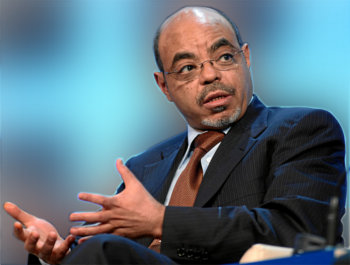
Zenawi Friend of Imperialism
Meles Zenawi was an oppressive puppet of Western imperialism, yet his obituary read out like that of a glorious king. He was called a visionary, a model for all of Africa to follow, a true friend of Zionist Israel, an inspirational spokesman for Africa. Meles was instrumental in giving support for everything the West wanted to do in Africa. Drones, Somalia invasion, Africom, Gulf War support, support for Israel. Of course the Western papers would call him a “great man”, great for them but not for Africa. His atrocities and brutal practice, “killing his own people,’ seemingly expunged from his record and the memory of Africa.
Some are so blinded they think an uncritical approach to their leaders is some sort of patriotism, some way of expressing national pride—it is not. Not to challenge the policies of leadership is to engage in passive tyranny.
There are two ways to be fooled. One is to believe what isn’t true. The other is to refuse to believe what is true–Soren Kierkegaard
CELEBRITIES FOR ICONS
Black Celebrities as Icons
Some of the most ignorant and unconscious people are represented at the Black celebrity elite. Some of the most useless people you could find in any group. They represent everything inside of the capitalist beast that enslaves us: Greed, self-hate, immorality, and excess. Whites love them because they are always promoting White business, buying German and Italian cars and calling African people niggers. bitches, and whores.
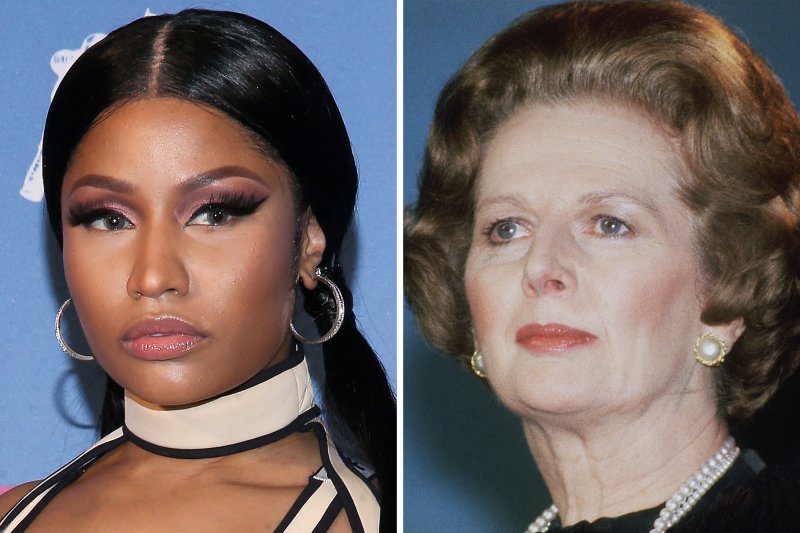
Nicki Loyal to Women power bigs up Thatcher
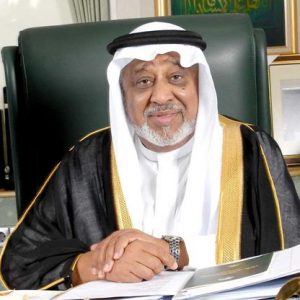
Ethiopian billionaire
And we think these people are successful. Compared to who ? Jay Z the richest of the bunch yet is he in Forbes top 100? No but he probably help put the white person who is . They get the crumbs, and worst than that we think Jay-Z success is a mirror of success for the African race. Not one of them are as rich as people like Al Moudi from Ethiopia. And not one of them have done as much. Even White celebrities do more for African than these clowns.
Celebrity culture is a tool of oppression; a weapon of controlling and distracting a dumbed down generation. So you are black and you are famous so I should like you? You win an Oscar and got a prize for your book and I should like you? You got out of prison and run the country into the ground and I should call you hero? You sing sweet and snort coke all night and I should cry for you? These empty-headed capitalist celebrities. Why do you think they are so famous? For being Pan-African? For being moral and role models? Did you give Alicia, Beyonce and Rihanna a record contract, do you distribute their material? Do you own the radio stations that play them? The MTV base that pumps their noise into our children’s ears? So how are they our celebrities just because they share the same skin hue as us?
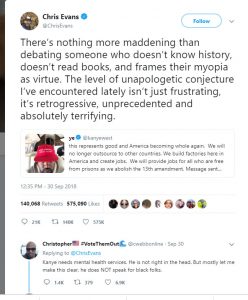
Kanye For Trump
These black celebrities are tools of the system that pays them. They are White Supremacy safe, that is why they tolerate these types. It is safe to have Alicia Keys as a role model for the African youth. It is safe to have Rihanna as a cultural ambassador for Barbados, to inspire women to behave like her. What will she instruct them with? What are her values? She speaks when they tell her to on issues they tell her to. And this is very true for the Gay rights campaign: Jay-Z, Corey Booker, Tyra Banks, Russell Simmons, Kerry Washington, Alicia Keys, Will Smith, John Legend, Vanessa Williams, the list is pretty long, and careers are at risk for dissent againt the pro-gay camp. Black Hollywood is not known for being bold on any political issue, so it is strange they are so “outspoken” on this one. Alicia Keys performs for the apartheid state of Israel [8] but is vocal for gay rights. Clearly these trivial celebrities are instructed on what their thoughts should be and when to give them.
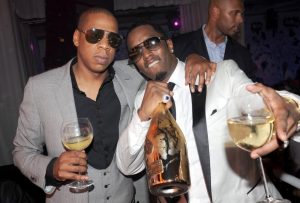
Does P-Diddy own it?
Some believe they are “successful”, Oh did you know P-Diddy has a champagne business? Did they know P-Diddy does not own one share in that company he is employed as a brand ambassador—and nothing else? For every penny the like of Rihanna and Jay-Z make in their so-called “business”, the real power brokers are just riding their names (perfume, clothing lines, etc) for high returns. These circus performers are the distractions to give the sheeple the sense of false pride in a people with low morals and low intellectual capacity. Sure they are rich, as Chris Rock said, but they are not wealthy.
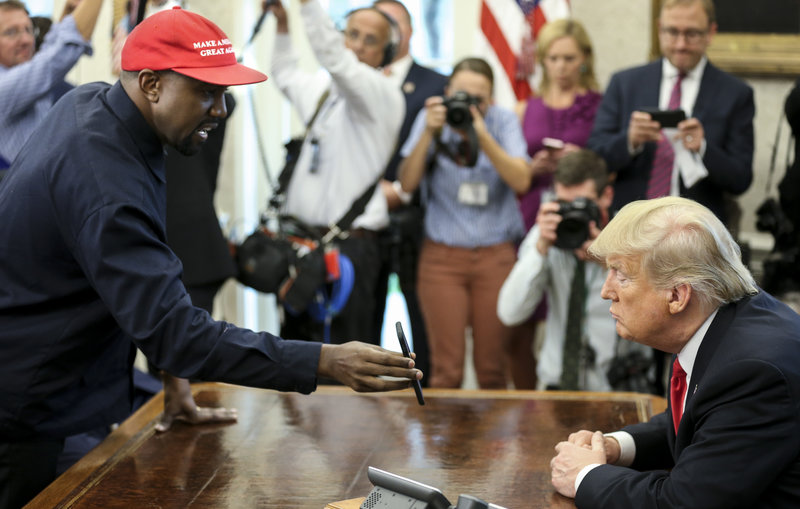
Big Fool Kanye
Between extravagant immoral lifestyles, they are a celebration of everything odious in the world of capitalism. Some may point to their charities, but the rule of 9/10 applies here as well: doing 9 things wrong and 1 thing right does not make you honorable. Worse far more White celebrities, like Anglia Jolie seem more interested in social causes than these black icons created as another tool of distraction and destruction. Some say “they are entertainers not icons,” That type of argument is an idealistic world-view which disregards reality, because regardless of what they ‘are” they are in lieu of real role models, the role models African youth are engineered to embrace.
SOLUTIONS TO LEADERSHIP
What can to be done? There is no denying the problem of leadership as one of the top problems in Africa, if not in the entire world. We have the capacity to end poverty, what really then is lacking is the will to do so. And that will is largely locked in the hands of those who call themselves leaders; business or political. And there is only one path–organize– use people numbers to create civil societies that hold leadership accountable. Have clear policy pushed into government. Peer review your peers and peer review your leaders. Make is so that any leader that has a hint of corruption, tribalism, nepotism, cronyism, Western choir boy-ism, non-Pan-African, or anti-Africanism on their breath– no hope of getting into office, or CEO of anything powerful. In all systems may they be sharia, democracy, or a socialist economy, people have the power to put pressure on leadership and shape the leaders that best represent their interest. The solution must come from the people.
SAINT OR LIBERATOR
If you want your liberators to also be pious saints then that is only in fiction – not reality. Haile, Menelik, Genghis Khan, Fidel, Che, Mao, Chaka, Askia, Dan Fodio, Akhenaten, Dosser, Hannibal, Ho Chi Ming.
 All share one thing in common. Some one called them tyrants and monsters. But we know that despite that, they were also people who shaped the nations they represented to make them super powers or successful. Someone, not interested in Africa, sold us the saint leader in the manufacturing of Nelson Mandela. But would India be great under Gandhi? Would Martin Luther King made America into any form of success?
All share one thing in common. Some one called them tyrants and monsters. But we know that despite that, they were also people who shaped the nations they represented to make them super powers or successful. Someone, not interested in Africa, sold us the saint leader in the manufacturing of Nelson Mandela. But would India be great under Gandhi? Would Martin Luther King made America into any form of success?
So we must understand different types of leadership and the roles they play. The voice of consciousness in a nation is not necessarily the type of leadership that will make any nation great. Good for the West is certainly not good for Africa. The West did not kill Gaddafi because he was bad for Africa, they killed him because he was bad for the West. In the same way Clinton sits and smiles at the feet of Nelson Mandela, there is something about him that is very good for White South Africans and America in general.
GREEDY SELFISH EGO MANIACS
You would think, and you would be wrong, that everyone who comes from poverty and comes into money would have empathy for those still trapped in the horrors of poverty—Not so. Once these key people get their BMW and 2 houses they are often the last people on Earth to care about the poverty they escaped. Combined with the vulgar wasting of money on everything materialistic they are more likely to kick the ladder down to make sure no one else can climb up.
SOCIAL MEDIA REVOLUTIONARIES
There is a new leader in town (Online) it is the social media revolutionary and with no criteria everyone is applying and self-appointing themselves for the post. Qualifications or track record? none. They talk for their own careers and only work alone. They play an important role in waking up African people globally since we have a culture of needing strong orators to make us understand. But there are not true leaders. And if we are confused on this point we will make a terrible mistake when we keep holding them up as solutions.
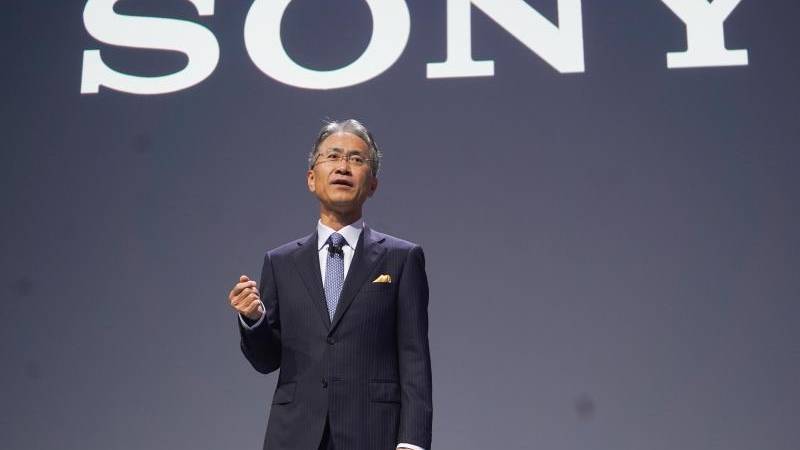
Japanese Youth do not listen to Hotepts
And we need to be very very very careful with them all. You see our challenge @ AHS is there is a gap. We are discussing political, social and economic issues @ a certain level. Most, like 99%,of our people do not connect with that, will never connect with that-chalk it up to the way humans are. Talking economics is dry and boring, people are not into deep reading or critical thinking. They want fast food hot talkers. And every generation has them. They need personalities to wake them up. But a personality if not an institution and historically we do not get that. AIPAC and ADF will survive its personalities and their hot rhetoric. Will we survive ours? Big problem. Finally when these personalities speak their hot sweet rhetoric how many people leave those videos and go and #buyblack? How many people go and sign up for water engineering, how many people go and buy a history book or serious documentary? How many people go and start a business or invest in a business in Africa? This is what is wrong with the lot of them. We have had 50 plus years of hard talking personalities. And it always starts and ends with them, almost like entertainers.
Fire and brimstone preachers have been always in our communities and our issue is not that we have them, is that we failed to understand their role in our struggle. They are NOT a solution. You see any personalities in the Palestinians struggle? Yet how come we have so many yet we can’t get nothing done? We can get unity done, we can’t solidify identity and support and create industries.
When the Japanese invite someone to speak to their youth you notice rarely is a fast talking personality from YouTube. Same with the Jews. I was in Israel once and yes they would bring the odd celebrity but I am telling you when Japanese bring people to talk to their people it is HEAD of SONY, head of CANON, people like Michio Kaku. Michio Kaku, other groups have brought in Steve Jobs, Pinket, Chomsky, now take a look at us… We bring in rap and flow from YouTube. And then we wonder why with all of these personalities our world rarely changes.
And people have confused leaders with personality or public intellectual? Well let us discuss it in medical terms, who gets a spokesperson for the hospital confused with the neurosurgeon when you have a brain tumor? You want to build a bridge and opposed to bring an engineer you bring a YouTube historian. Like bring Beyonce to the African Union to settle the nonsense in Southern Sudan. We need to know a hammer is one tool, a spoon is another. Confuse them and your bridge might just collapse.
People be careful with what people say they doing. A lot of vanity out there and no work to back it up. People are good at propaganda. But propaganda does not fix the economy. How do you know beyond their say so. If they said they making a film, then maybe at least you can go and buy it as proof. But Cabral said Claim no Easy victories, mask no obstacles, tell no LIES. And we have a lot of liars. Because we were in Zimbabwe, In Israel, in America, In SA, In the so-called Rasta area in Ethiopia and when you hear the talk and then go and see for yourself it is exaggeration at best, blatantly lies at worst. They building wells in Africa and then you find out they donated $400 US over 2 years. They got self-sufficient communities and all you find is people on state benefit. They got a blueprint for a New Africa economically and never run a business and begging with PayPal for money. And last but not least the criminals. A guy goes to Liberia with his name on an “Under construction sign”, photos him in front of it, comes back to the UK and say he is building a University. Asking you to support, background check show no permits, no one in Liberia heard of him.
“I want to be a the leader complex” exacerbated and modulated by the rise of social media. It is not very hard to verify any revolutionaries credentials anywhere on this planet. So this should make our lives easier, in theory at least. The Pan-African community is actually very small. There is someone who is at least one person removed from someone you know in this struggle. So for e.g. no one working on reparations would know certain people.
The AU complained that the Diaspora was a mess, what they were saying was too many people claimed leadership and boasted about having organizations. Very few do and even fewer than few have any influence in the real world. The AU has a discernment problem. And our Pan-Africanism has been suffering because we have not institutionalize quality control. People come out of the wood works driven by ego and try to claim what they have no legacy to claim.
Speak through work not abstract rhetoric. The glib can pour honey in your ears and make their noise sound like music.
ICONS OF BLACK SCHOLARSHIP
Diop, Van Sertima, and many others, as critical as they were to light in an era of darkness are not the Lord’s Gospel. We have a duty to be critical of their work to continue the spirit of their work. It gets really worrying when you see people roll of out these icons names without any reflection on truth or good research, without a caveat, or a concern of continuing the search for better scholarship but lazily accept what ever feels like honey in their ears. Are they pop idols to throw you nickers at? Or where they stepping stones of light along the path to greater truth about self. A truth no one generation can manage on its own, but something that must be carried on and on and on.
WHAT IS GOOD LEADERSHIP
“Mr so and so was a good leader, he built Roads.” But that is what they are supposed to do. Why are we so happy with such low demands on leadership? It is like praising a baker for making bread. But how good was the bread, did you make 1 loaf a year? Did you pocket all the flour? People do not know, they take leadership to mean, he dances good, he smiles a lot, he tells good jokes, he still has a house in the village, his wife can dougie. They cannot go beyond the spectacle because the very system they are voting for has not educated them in the issues pertinent to governance and hence those issues and how they affect the lives of people are largely unknown.
There is no leader that didn’t break a promise, so if breaking promises is a criteria of good leadership then no one is history is good. If leadership is measured in fiscal buoyancy and GDP terms then Ronald Reagan was one of the best leaders in history. If leadership is defined by thwarting the statehood of an oppressed people then Netenyahu is an excellent leader for the Zionist camp. Colonial oriented Barbados would certainly be ranked as excellent leadership with its number 47 HDI index. If warfare and global chaos is used to define a brave and valiant leader then Bush is such. If national pride is the virtue of good leadership then Hitler was amazing. If leadership is measured by national unity and solidarity then Mao was the best leader. What are we measuring when we say “a good leader”? If we want to discuss leadership in private enterprise well it is a lot easier, because Job satisfaction, economical index, wage ranking, are boxes we can tick and then Steve Jobs might be a good leader. Henry Ford would be a good leader. But running a country is a little more complex. Because even private business development, or lack thereof can be blamed on the political heads of state.
According to the Freedom House report Freedom in the World 2007, there are eight countries judged to have the worst records:
Burma (Myanmar), Cuba, Libya, North Korea, Somalia, Sudan, Turkmenistan, and Uzbekistan.
Also included are two territories, Chechnya (Russian Federation) and Tibet, whose inhabitants suffer intense repression. These states and regions received the Freedom House survey’s lowest rating: 7 for political rights and 7 for civil
liberties.
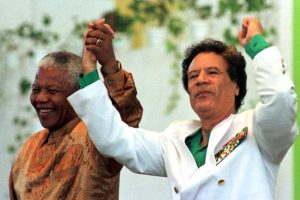
Gaddafi –Strong Leadership
Libya under Gaddafi wasn’t doing too bad. Certainly Iran post revolution has been doing pretty good. The post genocide government of Paul Kagame has been performing well in terms of educational standards. Again If breaking promise is an issue then there is no country that can say It had “good leaders” all leaders even Nkrumah, Ho Chi Ming broke promises to someone at some time. and you will always have someone to say “they were crap” . When you stand up to the West, you and your people will suffer. Fidel Castro is proof of this. Yet Cuba found its own path, yes it had some terrible failures, but it was there to fight against apartheid. Iran being a good example is a serious world power on the rise. I would say the Islamic Revolution created that. We need more detail and not sweeping generalizations. So “poor leadership” did not get Iraq in the dump, and esp not Iran. You cant be a poor leader and have the streets safe and night and the economy on the up. But at the same time those are not the only measures of leadership. As Saudi Arabia has safe streets and good economy, and they are in bed with the west. So there is no “What got them in the dump in the first place answer” A Plethora of factors. Leadership is one, it certainly is not one for Libya, and Iran. American leadership is crap where Africans are concerned, but they are no 1 in the world
MINDSET
Our leadership, and actually our entire disposition as a people is articulated on degrees of dependency. It is no surprise someone else makes the final product, and builds the roads. We define success as a good job, as a loan from a bank to buy a BMW, tenureship at Yale, how to get a grant to do research. And this mentality goes right the way through, from the politicians, to the academics writing the books about the bad leadership. So there is no confusion what the issue is, how to fix it is the what we are discussing.
A case study on SA shows that despite the opportunities of BEE, people as oppose to acquiring nation building skills, acquire a hustle mentality. Success is setting up a IT firm with —no programmers. A construction company—with no engineers. Their job is tender acquisition, they use their “black” skin to get the gig, and then pass it off/back to Whites. It is not development. And leadership in all sectors of Africa is defined along this mindset.
Example | Malawi President Joyce Banda is a Western Puppet, an aid dependent beggar. With all the “real” issues facing impoverished Malawi she is in deep services to agendas and interest groups from outside. “How can I get more aid”, “How can I arrest the enemies of the West.”Notable things in her short term in office have been to completely cause friction between the dying governmental Pan-Africanism over ICC racist beef with Africans. Nothing to stimulate African trade, just allow better exploitation and puppetry.
Human progress is neither automatic nor inevitable… Every step toward the goal of justice requires sacrifice, suffering, and struggle; the tireless exertions and passionate concern of dedicated individuals.–Martin Luther King, Jr.
The ICC has only warrants with African names on them. ICC has zero clout in Israel and America. Actually they cannot even hint at arresting any American citizen. Banda is also a champion for gay rights and aid. Her entire position is how to make the West love me so I can make Malawi an aid recipient beggar state. Help Darfur’s memory by creating stronger Pan-Africanism not appeasing Western funders, its immoral as she cares nothing about Darfur – only aid. Someone, not Africans, has been running agendas for 500 Years; the HIV/AIDS thing, FGM thing, this new Gay rights thing. Its the same thing: The issues which worry Europe come before the valid concerns of African people
Africa’s biggest problem today lies with the leadership. They are so removed from the people that they are looked upon as foreigners. They are driven by self-interest, so excessive that their peoples’ interests are forgotten — hardly different from the colonial masters–John Hayford
OLD LEADERSHIP
The methodologies of the 60’s should be evolved to function in our globalized world. It can no longer be acceptable for another generation to have to come and re-invent the wheel of failure via antiquated models of working.–‘Alik Shahadah
Most of our leadership (save NOI and Garvey) comes from academia – who are not wealth creators, but paid help/staff of European institutions. This is the dilemma of most academic Pan-Africanist. It is the theory of unity, without actually any unity. When reading their “solutions,” Media comes up Zero, Agency comes up Zero, business comes up Zero. Trade comes up Zero, but idealism comes up in every other sentence. And just like the Imperialist that they decry, they still use the same weapon of FEAR. “If you let so and so in, they will enslave you.” or “He is wrong so therefore I am right (despite bringing no solutions).” Anyone in disagreement means “A colonial puppet of Western or Arab imperialism.” – It works every time.
You only know how strong a bridge is when you try to walk across it
If you are a farmer you see the world through the eyes of a farmer, every piece of land you drive pass you notice it in farming terms. If you are a fisherman, every time you pass the sea you look at it and wonder “I wonder if there is any good fish in there.” Now Business people think business, filmmakers think in film, academics masturbate in suspended world of academic theory. When the month comes to an end they walk up a flight of stairs into the masters office and collect their check. The reality of the professional Black academic is therefore not realistically in tune with the importance of image of self, business ownership and the like. They know they are important but are generally only capable of dreaming of these things in theory and therefore fail to appreciate them beyond rhetoric. Yes they play a very important role in our liberation but we must understand the limits of their theory and not put the entire revolution on the writings of academia.
Most of our good scholar’s rage is spent fighting to keep their job given by the master. As well meaning as L Jeffries, Dr. Ben, Tony Martin, Clarke, et all are/were they are incapable of perceiving or implementing new economic paradigms, because most of them are economically dependent on European structures. So in review of the current generation of African Scholars who entirely depend on the publishing houses of Europe, the TV stations that accommodate them, and the universities that tolerate them. And we have relaxed for so long that we forgot we were guest in our enemies’ house. What happens when they decide to pull the plug? As they did with the UK African History departments: A whole lot of African scholars with mortgage arrears. And the same thing when the British decided African/Black arts was not worthy of further funding, and entire collapse of film, art, community culture based organizations occurred overnight. GONE! They failed to use the advantage in the funding years to create self-sufficiency. And like lambs to the slaughter they watch the funding coming down across the board yet were shocked when their funding got pulled.
Do not get so comfortable in someone else’s house that you forget to build your own–Shahadah
The current old time leadership and old time methodologies are also out-of-tune with community. Still thinking overhead projectors are revolutionary information delivery systems. They have no idea about the new world that is “liking” itself away on Youtube, Facebook and Wikipedia. Yet they continue to fail to engage the next generation who is techno savvy but lacking in direction. So this is why we see the same types of unchanging engagement: unattended academic conferences – no one reads that boring stuff. Pointless events with the same old faces from back in the day. Community sister [insert triple barrel African name] and community brother [insert Ancient Egyptian name].
Double conscious (Dubois) So they write an entire book cussing Europe, yet everything they write is for a White audience. All the paradigms of success and human relations are aping Europe. And nothing in their actual mind-set is located in Africa- only the rhetoric. How do they live? What is important to them? Getting praised by New York Times. I thought we were trying to come out of Babylon not go deeper into its cave.
Why do our leaders (in all areas) fail us? Because there is no consequences for failure. So a talks shop smooth talker can get up and shout out all kinds of beautiful rhetoric, after he gets his thunderous applause. But when he steps down off the podium, what systems or institutions exist to hold that person accountable to those words? Where is the peer review or monitor that tracks these words into actions? Because they will publically say “we need image of self” (crowd cheers them) but if you go to them behind closed doors they have nothing do with independent cinema. They shout “unity now” but in private, outside of the flashing cameras, they are the ones that get up and walk out of unity. They say “Forget the church and the mosque, go back to the old ways“, yet not one of them ever honors Ogoun or Rog or even the basics of principles of Maat. Africa this and Africa that, yet the only place they go in Africa is the grounds of the Hilton Hotel. And none of them actually plan to leave the suburbs of Atlanta for anywhere in Africa. Africa is a tourist stop over when then do shopping in Paris.
How can you have a Pan-African conference yet have no concept of creating a space for trade? As oppose to a TALK SHOP why not have a WORK SHOP, where people can gain real world skills?
Paper organizations do not own anything; they employ no one and create wealth for nothing. Abstract speeches belong in art galleries and rhetoric at a political rally. How many more debates re-visiting questions solved long ago by the elders and thinkers like Malcolm and Fanon? Yes we must use all tools to get people into liberation mode but we must also be careful of tricking ourselves into the warm bath of inactivity.
Some people are special, they struggle organizing a basic meeting, showing up on time, or even sending a basic e-mail or keeping any form of promise they made. They can’t even manage to buy conscious films or visit the Motherland. Yet these same people have the hottest rhetoric on the planet, they will tell you “we should do x, y and z, kick people out and take back Africa.” But If you can’t do small, how do you plan to do big?
FAILURE OF AFRICAN LEADERSHIP
Godsway Yao Sappor
Despite its natural wealth, Africa is home to the world’s most impoverished and abused people. African leaders are quick to blame the legacy of colonialism, others accuse its neo-colonial dimension, and some others pose culture, climate and bio-geographic factors as the explanation to the “why” of the African problems. In fact, the wave, the struggle for African Independence that started in the late 50’s and continued through the 60’s, was based on this understanding of colonial rule.
Of course at the time it had been proven beyond any reasonable doubt that the colonial masters were using the colonies to provide for their countries in Europe.
Anti-colonial activities of the likes of some of the malcontents such as Nkrumah had sensitized the populace to the problems of colonial rule and given him the popular support he needed to push for the withdrawal of all colonial elements from the then Gold Coast and the handing over of power to the local population. Ghana, born in 1957, became the first African country to get rid of colonial rule and, in the 1960s many other African colonies followed suit, making Nkrumah a household name in Africa. Nkrumah, in his belief that the independence of Ghana was meaningless unless the rest of Africa was free from colonial rule, began to engineer and support other African colonies’ quest for independence in line with what had been achieved in Ghana. Although Ghana initiated and was involved in this revolutionary struggle for independence, it has not seen any better development than the rest of the countries it was helping. In fact Ghana is not exempted from the least developed countries. It is therefore necessary to do a thorough study on Ghana in every aspect, when it comes to what is today known as the “development of underdevelopment” of the African continent.
It is not so much the wicked effects of colonialism or neo-colonialism or a regime of artificial borders that keep Ghana and Africa in general, poor. It is true that colonialism did not bestow much to Africa but the African leadership could not retain, let alone increase, the little that it inherited. In fact, corrupt leaders destroyed it. The inherited infrastructure-(roads, brides, schools, universities, hospitals, telephones, and even the civil service machinery) – are now in shambles. In Ghana, where the “colonial” roads are spotted with deep potholes, officials insist that it is the vehicle owners who must obtain “road-worthiness certificates” for their vehicles and not the roads that must be made “vehicle worthy”. This shows how the African leadership leaves the colonial legacies to shamble. Is it inadequate aid that keeps Ghana poor? In fact, “between 1985 and 1996 total aid flows to Ghana increased threefold from US$150.7 million to US$450.8 million in 1995”. Since the 1960s, more than $400 billion in Western aid and credits have been pumped into Africa with negligible results. Neither is Africa poor in natural resources. The fact is, the continent is tremendously rich in mineral wealth. Name the mineral and you will find it in Africa.
Common sense dictates looking both ways before crossing a street, or risk being hit by a truck. For decades, African leaders looked only one way, at “external factors”: colonial legacies, the lingering effects of the slave trade, an unjust international economic system, and predatory practices of multi-national corporations, among others, to explain the miserable economic performance of the continent. A lot of studies have already been done about the external factors and it is no secret to say that these factors are beyond the control or manipulation of most African countries on an individual basis. It is therefore a MUST to make an unerring examination of all causative factors, both external and internal, in order to arrive at a lasting solution. “A big obstacle to economic growth in Africa is the tendency to put all blame, failures and shortcomings on outside forces. Progress might have been achieved if we had always tried first to remove the mote in our eyes”
Although it is true that colonialism and Western imperialism did not leave Ghana, for this matter Africa in general, in good shape, the condition has been made immeasurably worse by internal factors such as misguided leadership, systemic corruption, capital flight, economic mismanagement, senseless civil wars, political tyranny, flagrant violations of human rights and military vandalism, among others.
In the first place, after independence, just like other African countries, Ghana assumed a primary role in economic development. Although state intervention was considered the only option for the desired economic development, the degree of intervention was too massive. The rationale for state control of economic and social matters emanated from misguided leadership. An ideological misconception emerged from the liberation struggle against Western colonialism. Colonial rule was judged “evil and exploitative”. Inspiring disgust and loathing of colonialism transformed itself into an ideological aversion to capitalism on the premise that, because the colonialists were capitalists, capitalism, too, was “evil and exploitative.” That kind of syllogistic reasoning characterized the pronouncement of such African leaders as Nkrumah of Ghana, Modibo Keita of Mali, Julius Nyerere of Tanzania, Kenneth Kaunda of Zambia, and Robert Mugabe of Zimbabwe. According to them, free markets, free trade, private enterprise, and the parliamentary system of democracy were all Western capitalist institutions that should be rejected by Africa. For example, Nkrumah warned Africa against an insidious dogma propagated by the imperialists: “that Western democracy and parliamentary system are the only valid ways of governing; that they constitute the only worthwhile model for the training of an indigenous elite by the colonial power”. Such propagandas were in the cold war context and the African leaders thought that capitalism was the main cause of the cold war. As a result to this, they thought socialism was the only way to development on the continent. Socialism to them seemed to be a faster way to build and would be more consonant with African values.
In Ghana, by 1961, Nkrumah started to lean more toward socialism by calling for highly centralized and greater state participation in the economy and a move towards socialism. He was convinced that “only a socialist form of society can assure Ghana of a rapid rate of economic progress without destroying that social justice, that freedom and equality, which are a central feature of our traditional life”. This greater control of the economy by the government led to corruption. While in office Nkrumah had been regularly accused of personal financial corruption. Although his finances were unorthodox, and funds were channeled to causes he held dear by means that auditors could not approve, Nkrumah did not accumulate a large private fortune in the manner of some other African heads of state. There was, however, rampant evidence of corruption among his party faithful. Although he complained about this in his address to the nation in a dawn broadcast, April 1961, he did little to alleviate the situation. This, to some extent, made Ghana and Africa in general, to unfortunately tolerate too long the avarice of its leaders.
It is very important to examine Nkrumah’s Volta dam project since this represents a very good example of economic mismanagement of African leaders. The Volta River Project was the largest scheme associated with Nkrumah’s development plans. It was to be his monument, but ended up his Waterloo. The project symbolized all his ideas for a prosperous future, but it also became an obsession and later a debt for the next generation. Nkrumah, in an attempt to free Ghana from its dependency on cocoa, and on the vagaries of raw commodity and agricultural prices, by attracting investment, had to negotiate terms with the industrial powers, and most especially with the US.
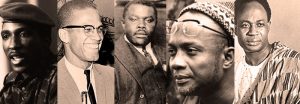
Real African Leaders
When the US realized how committed Nkrumah was to the project despite difficulties, it extorted large sum of money for the construction of the project. He had to borrow from America, Britain, the World Bank, and an aluminum consortium established to buy the electric power. Nkrumah was an early victim of the capitalist realization that lending to the Third World could be extremely profitable and that debtor nations in Africa had little political power with which to protect themselves. Preoccupation with the Volta led to a neglect of the cocoa industry and a higher taxation of cocoa farmers to pay the cost. Nkrumah forged ahead regardless and instead of rescuing Ghana from its economic underdevelopment hastened national bankruptcy and the exhaustion of the reserves. This explains how African leaders do put their countries into debt due to unreasonable spending on projects.
Almost every past and current African leader can be accused of economic mismanagement. Nkrumah believed that the independence of Ghana was meaningless unless the rest of Africa was free and wanted Ghana to play a leading role in Africa’s liberation from colonial domination. He was an advocate of revolutionary movements that, he thought, would lead to the creation of a United States of Africa, that is, a continental government. On the domestic front, massive government expenditures on road building, mass education, and health services were adjudged important if Ghana were to play its leading role in Africa’s liberation from colonial domination. When foreign currency reserves were exhausted, Nkrumah resorted to deficit financing and foreign borrowing. He didn’t only spend state resources on projects he deemed important for Ghana’s leadership role in African liberation but he also wasted resources in supporting his pan-African adventures. By the mid-1960s Ghana had a huge debt with rising inflation and economic mismanagement.
When a country, as well endowed agriculturally as Ghana, becomes a recipient of food aid, there must be something fundamentally wrong. It is no crime to say that colonial society had not created any significant urban population supplied by agricultural industries, and subsistence farming was the dominant source of food. Instead of Nkrumah to do something to reverse this situation, he introduced a strategy of compelling urban youths to go back to the rural areas in order to boost agriculture after referring to cocoa farming as a “poor nigger’s business”. To now compel the people who had left the country to support him and find a better life in the towns where he (Nkrumah) centralized his industrial factories, was to court disastrous unpopularity. This unpopularity resulted in his overthrow by a military coup. He should have adapted a better way to encourage the rural youths, especially those who were yet to leave for the cities, to get involved in agriculture. This would keep the cities from growing and also an improvement in the sector.
Nkrumah’s vision for Africa was grandiose but ironically, Ghana itself has not enjoyed exemplary leadership. Ghana’s economic malaise is not the result of lack of opportunities or of resources. Ghana, like the rest of Africa, with the possible exception of South Africa and a few others, suffers from the affliction of dishonest leadership.. John Hayford, a Ghanaian writer, adds: “Africa’s biggest problem today lies with the leadership. They are so removed from the people that they are looked upon as foreigners. They are driven by self-interest, so excessive that their peoples’ interests are forgotten — hardly different from the colonial masters”. Through bad leadership, post-colonial African leaders have merged both internal and external factors together to create a third factor that makes western countries think that the African is incapable of finding African solution to the problems affecting the continent. The indecisiveness and inaction of African leadership make them always choose the backseat, and leave the driving to others, usually the western world, even in matters that are of immediate concern to Africans. When soldiers seized power in Africa, they almost always cited corruption, economic mismanagement, and high cost of living, among other things as justification. Unfortunately they always ended up doing the things they preach against due to the chart left by successive government. Indeed, when Jerry John Rawlings seized power in Ghana, his central indictment against the old regime was that it exploited the farmers. However it should be noted that people in the rural areas were still absolutely poorer under his governance than they were in the mid-1970s (much less than at independence). He misguided himself with other things once he’s in power. Corruption was not excluded from Rawlings’ indictment. In fact, his diagnosis of the country’s economic problem in 1979 did not seem to differ substantially from the statement of previous leaders. He brutalized people he suspected to be involved in corruption and the cause of the economy’s problem as a response to the perceived malpractices. Yet, his regime is one of the most corrupt that Ghana has ever had. If he wasn’t involved in corruption himself, he did nothing to stop his potbellied ministers from doing things accentuated in his indictment.
Right from what led to the overthrow of Nkrumah to the current leadership of Ghana, ordinary Ghanaians bewildered and disappointed by the outcome of self-rule, have found little around them to instill the confidence that as a people they can manage their own recovery. In some respects Africans are now more vulnerable to theories of African inferiority than they were during colonialism. Under colonialism they could dream that with liberation would come the opportunity to prove their worth. But actions of the African leaders have made the theory of African dependency persistent. It is up to current leaders to stop playing the blame game and focus not only on the external factors but also on the internal factors that cause the woes of the continent when they try to solve these problems.

